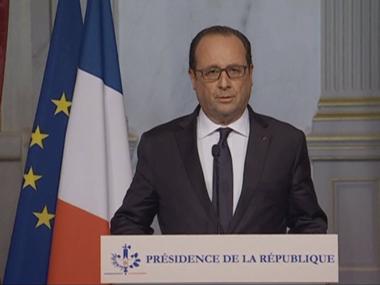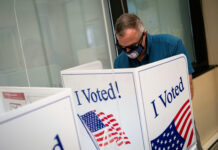The Paris attacks will likely increase the political tensions in France before the regional elections in the country. The terrorist attacks will also likely increase market volatility, according to analysts at Goldman Sachs.
The Paris attacks killed 129 people and injured 352 others, which the Islamic State of Iraq and Syria (ISIS) claimed responsibility. French President Francois Hollande immediately declared a state of emergency.
Goldman Sachs analyst Alain Durre and his colleagues noted that the state of emergency in France included the implementation of several measures such as:
- reinforced controls at French borders and for all transport to and from other countries
- increased military presence in Paris and the government will likely introduces curfews
- potential cancellation of public events when public security is believed to be at risk
- additional security and police controls (including the ability to search homes any time without warning)
The French government also sent 10 fighter jets and bombed Raqqa, the stronghold or the caliphate capital of ISIS in Syria. French Defense Minister Mickael Soria said all of the targets were destroyed.
Paris attacks: a challenge to the French government
According to the analysts, the Paris attacks pose challenges to the French government particularly Pres. Hollande. He declared three days of national mourning and called for national unity and solidarity on Saturday. The President also declared France’s determination to continue the fight against terrorism inside and outside its borders.
The analysts noted that Pres. Hollande’s immediate response to the Paris attacks reflected the growing tensions and divisions within the French population.
The analysts believed that the issue on security and immigration will be center of the electoral debate, which will likely boost the performance of Marine Le Pen, leader of Front National party. Le Pen emphasized that France and the French citizens are no longer safe. She is pushing the mainstream parties to clarify their positions on immigration and security.
On the other hand, former French President Nicolas Sarkozy, the current head of the Les Republicains party called for a “drastic reinforcement” of security measures.
“Under such electoral pressures, the French government is likely to adopt a harder line towards immigration, complicating management of the ongoing refugee crisis and creating further political tensions at the EU level at a sensitive time,” according to the analysts.
Paris attacks economic impact
According to the analysts, the decline of tourists will likely be the immediate economic impact of the Paris attacks, which will result to the fall of non-durable consumption.
The analysts also believed that the Paris attacks will negatively affect the retail sector in the short-term. Consumer spending is expected to remain weak for several months due to persisting concerns of further terrorist attack.
“While heightened security concerns and uncertainty persists, investment decisions and purchases of consumer durables are likely to be delayed. But such effects can reverse quickly should confidence be re-established,” according to the analysts.
Furthermore, the analysts believed that the overall economic impact of the Paris attacks will be negative in the short-term. The magnitude of the impact is unclear over the long-term.
They said, “Higher government spending will support aggregate demand as security measures are expanded. The response of the private sector will depend crucially in whether (and how quickly) confidence can be restored and uncertainty reduced.”









